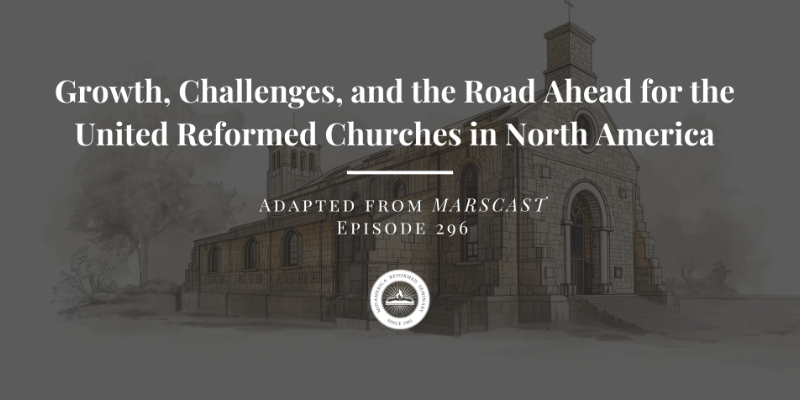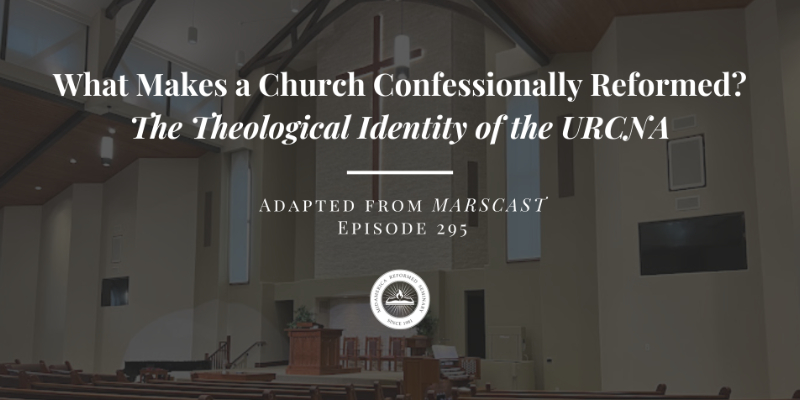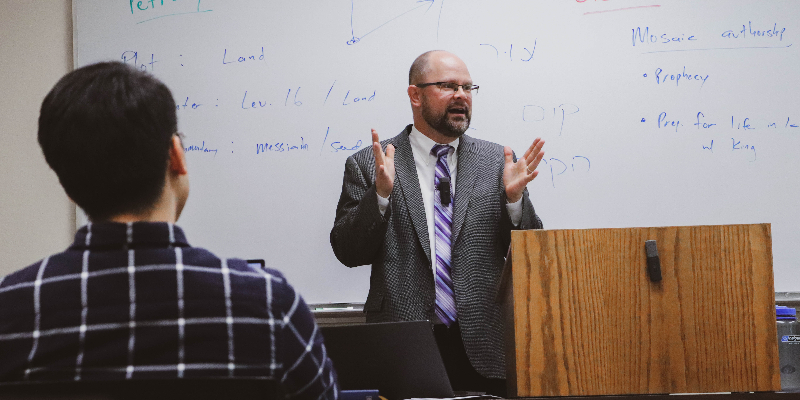
The Seminary Decision: Student Perspectives on Theological Education at Mid-America
The insights shared throughout this article come directly from current Mid-America students in a recent video where they candidly discuss their seminary choice. You can watch the full video here to hear these reflections in their own voices, or continue reading for a deeper exploration of the themes they raise.
The Weight of Vocational Preparation
The selection of a theological seminary represents one of the most consequential decisions in the life of a man called to pastoral ministry. Far from being merely an academic credential to acquire or a professional requirement to fulfill, seminary education constitutes a formative period in which ministerial identity is shaped, theological convictions are refined, and pastoral competencies are cultivated. The question before every prospective student is not simply where to enroll, but where one's calling will be most faithfully and thoroughly developed for a lifetime of service to Christ's church.
At Mid-America Reformed Seminary, we have long maintained that the most credible testimony to our institutional mission comes not from administrative declarations or promotional literature (as good as those things are), but from the students themselves—men who have thoughtfully discerned their calling, carefully evaluated their options, and deliberately chosen to pursue their theological education within our community.
Pastoral Confidence and Institutional Reputation
One student's account of his seminary selection process sheds light on a significant aspect of Mid-America's standing within the Reformed community. When discussing various seminaries with his pastor, he received an unequivocal response: "You're going to Mid-America. End of question."
Such pastoral confidence emerges from observable patterns over time. It reflects years of watching Mid-America graduates demonstrate faithful exposition of Scripture, exercise wise pastoral leadership, and persevere in ministry with theological integrity. It indicates that pastors who are themselves accountable for the souls under their care trust Mid-America to prepare the next generation with the same seriousness.
What accounts for this confidence? What distinguishes an institution in ways that generate such a decisive pastoral recommendation? The answer lies in several interconnected institutional commitments that students consistently identify.
The Integration of Biblical Scholarship and Homiletical Practice
Students repeatedly emphasize Mid-America's commitment to what might be termed "biblically grounded pastoral education." One student articulates this as the institution's "biblically pastorally focused teaching," a formulation that refuses the false dichotomy between rigorous exegetical work and practical ministerial preparation.
This integration manifests structurally in the curriculum. As one student observes, "Each biblical studies class has a corresponding preaching class, so there'll be no genre of Scripture that you don't know how to preach coming out of seminary." This pedagogical pairing ensures that students engage the biblical text not merely as an object of academic inquiry but as the living Word to be proclaimed. They study the Gospels, Epistles, Prophets, and Wisdom literature with both exegetical precision and homiletical responsibility.
Another student appreciates the curricular coherence, noting how "the course sequence is arranged in such a way that every class works in tandem with one another, building our mindset ready for the kingdom that is coming and to be consummated." This reflects an educational philosophy that views theological training not as the accumulation of discrete units but as systematic formation oriented toward eschatological reality and present faithfulness.
The Ministerial Apprenticeship: Supervised Practice in Ministry
Among Mid-America's most distinctive features is the Ministerial Apprenticeship Program, which embodies the institution's conviction that pastoral formation requires supervised engagement in actual ministry contexts. One student characterizes this as Mid-America's ability to "blend the theory and the practice"—a synthesis that distinguishes professional pastoral education from purely academic theological study.
The apprenticeship structure offers carefully designed opportunities for students to exercise pastoral responsibilities under the guidance of experienced supervision. One student, acknowledging his limited prior ministry experience, explains his attraction to the program: "Knowing that the school is very dedicated to giving us students an experience in the pulpit through the internships and things like that during the summer was very attractive to me. I'm looking forward to getting that kind of exposure here."
This approach addresses a persistent challenge in theological education: the transition from classroom to congregation. Many institutions excel at imparting theological knowledge but provide limited opportunity for students to develop the practical wisdom, pastoral judgment, and ministerial competencies required for effective church leadership. Mid-America's apprenticeship model ensures that graduates enter their first calls not as practitioners attempting to apply abstract theory for the first time, but as men who have already begun the lifelong process of integrating theological understanding with pastoral practice.
As one student succinctly states, "I was looking for an institution that wouldn't just train me to be a Bible scholar, but that would really equip me to be an effective preacher and pastor." At Mid-America, these represent complementary rather than competing objectives.
Holistic Formation: The Cultivation of Pastoral Character
Multiple students describe their Mid-America education as "holistic," a term that warrants careful consideration. One explains their choice: "I chose Mid-America not just because of its academic rigor, but also because of the holistic education that I could get to train for future ministry, whether that be in church settings or wherever that would be."
This holistic approach recognizes that the ministry demands more than cognitive mastery of theological content. It requires spiritual maturity, emotional wisdom, relational capacity, and practical discernment. It necessitates character formation alongside intellectual development. The cultivation of these qualities cannot be reduced to coursework or measured by examination scores, yet they prove essential to sustained, faithful ministry.
Mid-America's institutional scale and community structure create conditions that make comprehensive formation possible. Faculty members function not merely as instructors delivering content, but as mentors engaged in the formation of students. They model pastoral ministry across decades of faithful service. They speak into students' lives with pastoral wisdom. They exemplify the integration of theological conviction, pastoral practice, and personal godliness that the institution seeks to cultivate in its graduates.
Financial Stewardship and Ministerial Freedom
In contemporary theological education, the economics of seminary training demand serious consideration. Educational debt can significantly constrain pastoral ministry, limiting a graduate's freedom to serve where calling and gifting indicate rather than where salary considerations dictate. One student articulates this concern: "[I've appreciated] the affordability of [Mid-America] and their willingness to work with you so that you can actually afford to go to school—you're not coming out with crippling student debt as you begin to serve the Lord in the local church, Lord willing, one day."
Mid-America's commitment to financial accessibility reflects both institutional values and pastoral realism. The administration recognizes that the stewardship of students' financial resources constitutes a dimension of pastoral care. Excessive educational debt can compromise a pastor's ability to serve small congregations, pursue church planting, or engage in missionary service. It can generate financial anxiety that distracts from ministry focus and spiritual vitality.
The institution's willingness to work individually with students on financial matters demonstrates a pastoral concern that extends beyond the immediate transaction of tuition payment to the long-term flourishing of graduates in ministry.
Global Vision: Missions and Evangelism
While many seminaries concentrate exclusively on preparing pastors for established congregations, Mid-America maintains a robust commitment to global missions and evangelistic ministry through its Center for Missions and Evangelism. One student identifies this as a significant factor in his decision: "Something that drew me to Mid-America was the Center for Missions and Evangelism—their commitment to raise up not only preachers of the gospel in the local church, but also men who do the work of the evangelists and also raising up men to go to the ends of the earth, to bring the gospel to those who have never heard."
This dual emphasis on local pastoral ministry and global missionary endeavor reflects the biblical mandate to make disciples of all nations. It ensures that students graduate with hearts oriented toward gospel proclamation, whether in their immediate context or among unreached peoples. It cultivates a missionary consciousness even among those called to settled pastoral ministry, and reinforces the understanding that every local church should function as a sending community and every pastor as an advocate for gospel advance.
Community and Collegial Formation
Perhaps the most consistently emphasized theme in student testimonies concerns Mid-America's close-knit community. Students value the opportunity to form "close relationships with other students and the faculty" that shape their seminary experience and extend throughout their ministerial careers.
In larger institutions, students can easily experience anonymity, completing degree requirements without substantial relationships with faculty or fellow students. Mid-America's institutional scale creates natural opportunities for genuine community. Students engage in sustained theological conversation, pray together through personal and vocational challenges, and encourage one another through the demands of intensive study.
These relationships prove foundational to long-term ministerial flourishing. The colleagues one studies alongside today often become the ministry partners one consults for wisdom tomorrow. Faculty members who invest in one's formation during seminary often serve as lifelong mentors, providing counsel through decades of ministry. Theological education occurs not only through formal instruction, but also through the countless informal conversations, shared meals, and spontaneous discussions that characterize an authentic Christian community.
Institutional Coherence: The Mid-America Vision
These student testimonies reveal a coherent institutional vision rather than disconnected programmatic features. Mid-America Seminary pursues a clear mission: providing biblically grounded, pastorally focused theological education that equips men for effective ministry in Christ's church and beyond.
This vision is expressed in a thoughtfully designed curriculum that integrates biblical studies with homiletical instruction. It takes form in the Ministerial Apprenticeship Program, providing supervised ministry experience. It manifests in a holistic educational approach, forming pastors rather than merely instructing scholars. It appears in the financial accessibility, enabling students to pursue their calling without crushing debt. It operates through the Center for Missions and Evangelism, maintaining focus on global gospel proclamation. It thrives in the close-knit community where formative relationships are fostered.
As one student reflects, "I appreciate how the course sequence is arranged in such a way that every class works in tandem with one another, building our mindset ready for the kingdom that is coming and to be consummated." This captures Mid-America's ultimate concern: preparing men to serve Christ's church faithfully until His return, equipping them to proclaim the Word with clarity, and forming them as shepherds who will give a faithful account before the Chief Shepherd.
An Invitation to Inquiry
For those considering theological education, we commend careful investigation rather than hasty decision. Listen to current students. Examine the curriculum in our online catalog. Visit campus if possible. Engage faculty members in conversation. Attend classes. Observe community life. Assess whether Mid-America's vision for theological education aligns with your sense of calling and your convictions about pastoral ministry.
If you know individuals wrestling with the decision to attend seminary, direct them toward these student voices. Sometimes the most compelling testimony emerges not from institutional representatives but from those currently engaged in formation, from students discovering through daily experience the wisdom of their choice.
When a pastor confidently directs his congregant toward Mid-America with the words "end of question," substantial reasons undergird that confidence. The students who study here can articulate those reasons with conviction born of experience. They are being equipped, by God's grace, for faithful ministry in Christ's church across a lifetime of service.
Recent articles




